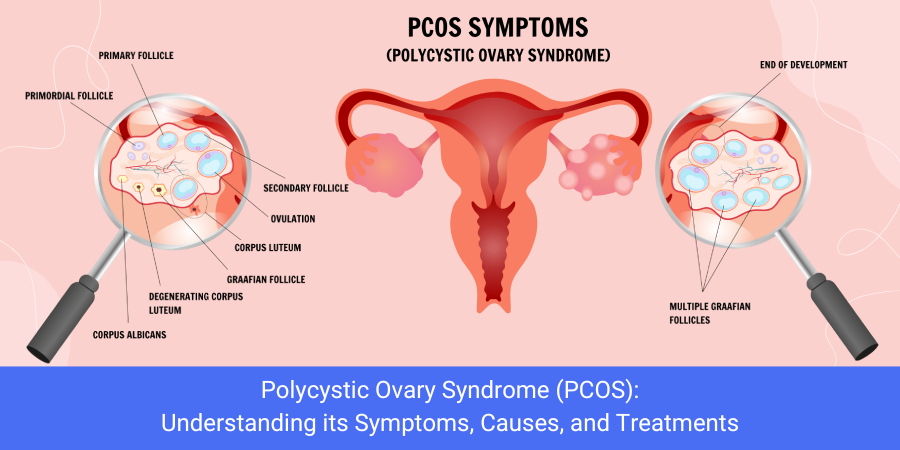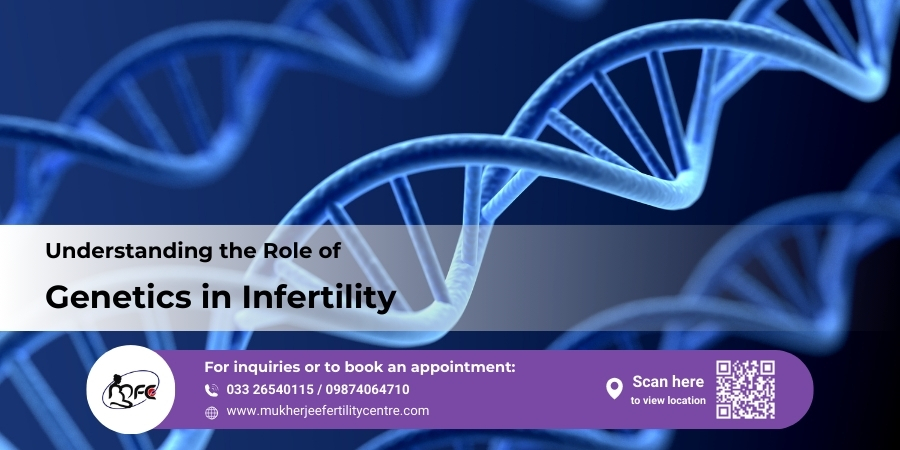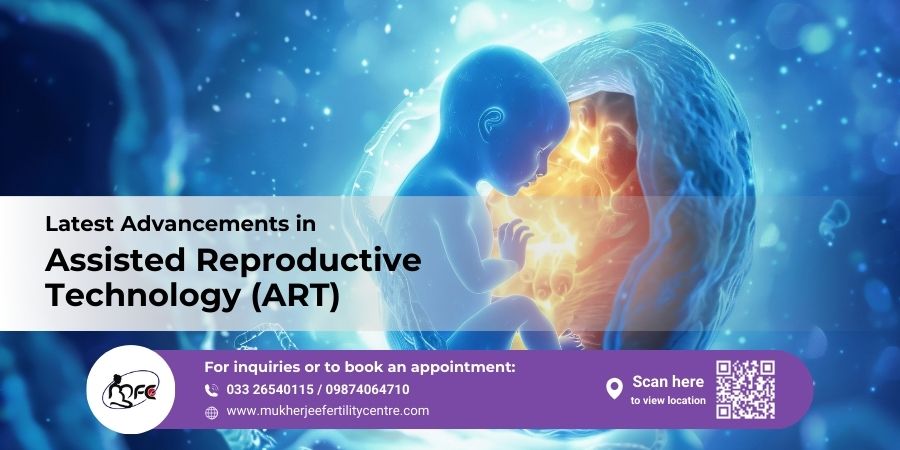
Polycystic Ovary Syndrome (PCOS): Understanding its Symptoms, Causes, and Treatments
By MFC on 30,Apr 2024
Polycystic ovary syndrome (PCOS) is a common hormonal disorder affecting women of reproductive age. It is characterized by hormonal imbalances, irregular menstruation, and the development of small cysts on the ovaries. PCOS can have significant implications for women's health and fertility, making it crucial to understand its symptoms, causes, and available treatments.
Introduction to Polycystic Ovary Syndrome (PCOS)
PCOS is a complex condition that affects the endocrine system, leading to hormonal disturbances. Women with PCOS may experience irregular menstrual cycles, excess androgen levels, and ovarian cysts. These hormonal imbalances can result in various symptoms and complications, including infertility, weight gain, and metabolic disorders.
Understanding the Symptoms of PCOS
The symptoms of PCOS can vary widely among individuals but commonly include irregular periods, excess hair growth (hirsutism), acne, and weight gain. Many women with PCOS also experience difficulty conceiving due to irregular ovulation and hormonal imbalances.
Differentiating PCOD vs PCOS
Although often used interchangeably, PCOD (Polycystic Ovarian Disease) and PCOS are not the same. PCOD refers to the presence of multiple cysts on the ovaries, while PCOS encompasses a broader range of symptoms and hormonal imbalances, including irregular menstruation and elevated androgen levels.
Exploring the Causes of PCOS
The exact cause of PCOS remains unclear, but it is believed to involve a combination of genetic, environmental, and lifestyle factors. Insulin resistance, hormonal imbalances, and inflammation are thought to play key roles in the development of PCOS.
Recognizing the First Signs of PCOS
Early detection of PCOS is essential for timely intervention and management. The first signs of PCOS may include irregular periods, acne, hair thinning, and unexplained weight gain. However, diagnosis typically requires a comprehensive evaluation by a healthcare professional.
PCOS Symptoms and Their Impact on Women's Health
PCOS symptoms can have a significant impact on women's physical and emotional well-being. Irregular menstrual cycles can disrupt fertility and increase the risk of developing other health conditions, such as type 2 diabetes and cardiovascular disease.
Available Treatments for PCOS
While there is no cure for PCOS, various treatments are available to manage its symptoms and reduce the risk of complications. Treatment options may include lifestyle modifications, such as diet and exercise, medications to regulate menstrual cycles and hormone levels, and fertility treatments for women trying to conceive.
Importance of Early Diagnosis and Treatment
Early diagnosis and treatment of PCOS are essential for preventing long-term complications and improving overall quality of life. Women experiencing symptoms of PCOS should seek medical attention promptly to receive appropriate care and support.
PCOS Treatment Approaches
Treatment for PCOS is tailored to individual needs and may involve a combination of lifestyle changes, medications, and therapeutic interventions. Healthcare providers work closely with patients to develop personalized treatment plans aimed at managing symptoms and optimizing health outcomes.
PCOS Treatment for Unmarried Women
PCOS can affect women of all ages, including those who are unmarried or not trying to conceive. Treatment options for unmarried women with PCOS may focus on symptom management, hormone regulation, and lifestyle modifications to support overall well-being.
Diet and Lifestyle Modifications for PCOS Management
Diet and lifestyle modifications play a crucial role in managing PCOS symptoms and improving health outcomes. A balanced diet rich in fruits, vegetables, whole grains, and lean proteins, coupled with regular exercise, can help regulate hormones, manage weight, and reduce the risk of complications associated with PCOS.
Fertility Concerns and PCOS Treatment for Pregnancy
Many women with PCOS experience difficulties conceiving due to irregular ovulation and hormonal imbalances. However, with appropriate treatment and support, pregnancy is possible for women with PCOS. Fertility treatments, such as ovulation induction and assisted reproductive technologies, may be recommended to help women with PCOS achieve pregnancy.
Role of Dr. Shiuli Mukherjee in PCOS Management
Dr. Shiuli Mukherjee, an experienced obstetrician-gynecologist, specializes in the diagnosis and treatment of PCOS at Mukherjee Fertility Centre. With her expertise and compassionate care, Dr. Mukherjee has helped numerous patients effectively manage their PCOS symptoms and achieve their family-building goals.
Success Stories from Mukherjee Fertility Centre
Mukherjee Fertility Centre has a proven track record of success in treating PCOS and helping women overcome fertility challenges. Through personalized treatment plans, advanced reproductive technologies, and unwavering support, Dr. Shiuli Mukherjee and her team have empowered countless individuals to realize their dreams of parenthood.
Conclusion
Polycystic ovary syndrome (PCOS) is a complex hormonal disorder that affects millions of women worldwide. By raising awareness of its symptoms, causes, and treatment options, we can empower women to take control of their health and seek timely intervention when needed. With the guidance of experienced healthcare providers like Dr. Shiuli Mukherjee and the dedicated team at Mukherjee Fertility Centre, women with PCOS can receive the support and care they need to lead fulfilling lives.
Frequently Asked Questions (FAQs):
1. What are the common symptoms of PCOS?
Common symptoms of PCOS include irregular periods, excess hair growth (hirsutism), acne, weight gain, and difficulty conceiving. These symptoms may vary from person to person.
2. Can PCOS be cured permanently?
PCOS cannot be cured permanently, but its symptoms can be managed effectively through lifestyle changes, medication, and sometimes surgical intervention. Treatment aims to alleviate symptoms and reduce the risk of long-term complications.
3. Is PCOS treatment suitable for unmarried women?
Yes, PCOS treatment is suitable for unmarried women as well. The focus of treatment is to manage symptoms, improve overall health, and address any concerns related to fertility or menstrual irregularities.
4. What dietary changes are recommended for managing PCOS?
Dietary changes play a crucial role in managing PCOS. A balanced diet rich in fruits, vegetables, whole grains, lean proteins, and healthy fats can help regulate insulin levels, control weight, and improve symptoms. Avoiding processed foods, sugary snacks, and excessive carbohydrates is also recommended.
5. How can I book an appointment with Dr. Shiuli Mukherjee at Mukherjee Fertility Centre?
To book an appointment with Dr. Shiuli Mukherjee at Mukherjee Fertility Centre, you can contact us at 9874064710 or 033 2654 0115. Our team will assist you in scheduling a convenient appointment slot and provide any necessary information regarding consultations, treatments, or procedures. You can also visit our website at www.mukherjeefertilitycentre.com to book your appointment.









